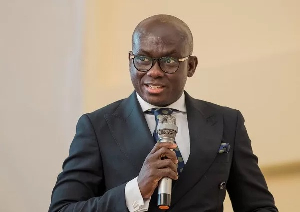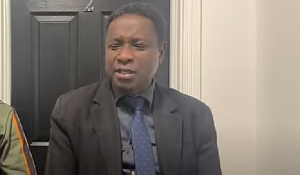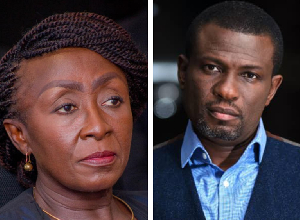In a deft move, the Court of Appeal in a two-to-one decision ruled on Tuesday that the former Deputy Finance Minister, Dr Ato Forson cannot be held liable for his role in the establishment of Letter of Credit in the ongoing ambulance trial, foreclosing a very acrimonious legal challenge the minority leader has been saddled with in the last two years.
The Court of Appeal in striking down the prima facie decision by the High court against Dr Ato Forson, established beyond doubts that Dr Ato Forson did not authorize any payments in the contract under review, and rejected the assertion that a mere authorisation of letters of credit amounts to authorizing payment.
The court held that the contract in question has nothing to do with the Ministry of Finance, and that the then Finance Minister - Seth Terkper, represented by his deputy, Dr Ato Forson merely facilitated the contract by authorizing the Letter of Credit - Additionally, there were conditions precedent upon which payment ought to have been made and it's none of Dr Ato Forson's business to insist that those conditions are met.
In effect, the Appellate court said any financial loss to the state and criminal burden, arising out of the ambulance contract ought to be placed at the doorsteps of the Ministry of Health, and not the Ministry of Finance for merely authorizing the Letter of Credit.
Of course, of two individual decisions that formed the majority judgement, all appeared to raise a broader legal consequence flowing from the Attorney General’s case against the appellants.
In his controlling opinion, Justice Ackaah-Boafo held that the High court erred in law in its prima facie case against Dr Ato Forson - He said there was no link between the evidence adduced by the prosecution and the offence the prosecution claimed to have been committed.
“I am of the view that the prosecution failed to provide sufficient evidence that meets the threshold of connecting first appellant with the offences he is charged with”.
Justice Bright Mensah who wrote a separate but concurring opinion wondered why Ato Forson was on trial since the ambulance deal was primarily within the purview of the Ministry of Health - He said apart from writing to the Bank of Ghana for the letters of credit for the purchase of the ambulances, Ato Forson played no significant role for him to be held accountable.
According to him, the evidence on record showed that it was the Ministry of Health that applied for the LCs, but failed to do the necessary due diligence and the checks to get the country value for money for the ambulance purchase.
“As the applicant and beneficiary of the LCs, it was the duty of the Ministry of Health to do the necessary pre-shipment inspection to be satisfied that the ambulances being imported met the required specifications. It was not the duty of the appellant, Ato Forson, to do so,” Justice Mensah held.
The whole case turned on the issue of whether Dr Ato Forson as Deputy Finance Minister got authorisation from the substantive Minister of Finance, Hon Seth Terkper in the establishment of the letter of credit from the Bank of Ghana.
The Court of Appeal made it clear that it is not enough for the Attorney General to allege that Dr Ato Forson acted on his own, and not prove what he alleges - Indeed, it was up to the person alleging to prove his case but the Attorney General failed to prove that Dr Ato Forson actually acted without the consent of his boss regarding the establishment of the letters of credit.
The court even went ahead and made an extended, belabored foray into a definitional distinction between letters of credit and whether it constitute actual payment or not.
Certainly from a broader point of view, this ruling just means that no court of competent jurisdiction, focused on justice delivery should countenance any desperate legal workarounds, and abuse of prosecutorial powers.
But beyond that, in itself, in terms of the actual outcome of the decision, it is relatively a wake up call for the Attorney General to confront the truth at the heart of this sorry legal saga.
More than anything for me, this decision just confirmed that the judiciary is never really going to be railroaded into side-stepping due process for political expediency.
But then again, having read the entire 125- page blockbuster decision by the Appellate court on the Republic vrs Ato Forson and two others, I can deduce that the court appears to be telling the Attorney General to wake up and smell the coffee - Prosecutors don't adjudicate cases, they prosecute, make arguments, and are expected to use every tool at their disposal to make the strongest case possible - Above all, they present evidence. If their arguments are all bollocks, they lose.
And a judge on the other hand decides a case based not only on the relative strengths of the evidence and arguments of the opposing parties, but also on their knowledge of the law and how it applies to the arguments at hand. They're not supposed to apply the law based on their political preferences or who their chums are - This is exactly what the Court of Appeal seems to be telling the Attorney General.
I shall be back
Opinions of Friday, 2 August 2024
Columnist: Dela Coffie



















